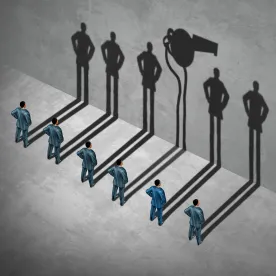The Department of Justice recently announced that Early Autism Project Inc., South Carolina’s largest provider of children’s autism behavioral therapy, has agreed to pay the United States $8.8 million to settle a False Claims Act whistleblower lawsuit. The government alleges that the company submitted false claims to a military insurance program, TRICARE, and the South Carolina Medicaid programs for therapy.
The settlement resolves the allegations that Early Autism Project Inc. devised a program designed to maximize profits by billing Medicaid for administrative and management functions of the company. This would be done by requiring therapists to reserve an allotment of billable time each week or month so that EAP could bill Medicaid for positions called Regional Lead and Regional Coordinator. However, the government contends that these coordinators were not actively working with the child from whom the hours were deducted. Medicaid does not pay for therapy services by individuals who are not actively working with the child for whom the therapy is billed.
“That the State’s largest service provider for autistic children would defraud government health programs is compounded only by their billing at the expense of taxpayers for misrepresented or nonexistent services—as alleged here,” said Derrick L. Jackson, Special Agent in Charge for the Office of Inspector General of the U.S. Department of Health and Human Services, in the Justice Department’s press release. “We will continue to work with our law enforcement partners to protect vulnerable patients and preserve government health programs.”
Unscrupulous healthcare providers have found many different ways to take advantage of vital government programs like Medicare. The False Claims Act has been an important tool in the fight against government programs fraud since it was first enacted to combat war profiteering during the Civil War. But the system depends on healthcare whistleblowers telling their story with the help of an experienced False Claims Act attorney. The case stemmed from a lawsuit filed by a former employee of EAP, Olivia Zeigler. As a part of this case’s resolution, the whistleblower will receive approximately $435,000 under a provision of the False Claims act that permits successful qui tam whistleblowers to receive between 15% and 30% of the amount recovered for the government
“Companies that commit to providing intensive behavioral treatment to children with autism, at a pivotal time of that child’s development, should be held accountable if they do not provide the services, but nevertheless request payment for those services,” said Barbara Bowens, Acting United States Attorney for this case and Civil Chief for the United States Attorney’s Office for the District of South Carolina, in the Justice Department’s press release. “The United States Attorney’s Office is committed to protecting the federally-funded programs that make it possible for children with special needs to receive these vital services.”




 />i
/>i

